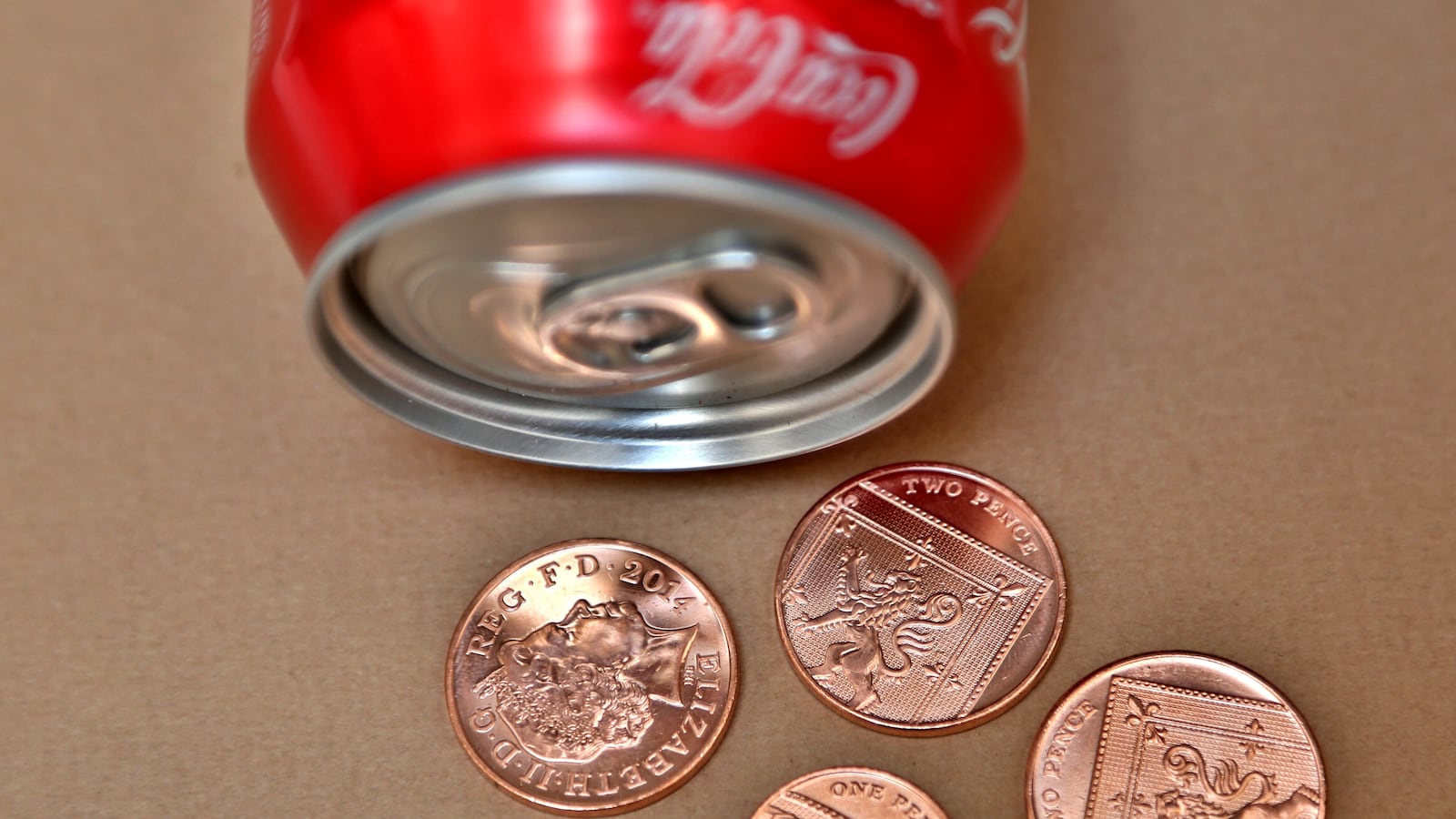LONDON — Britain just put Michael Bloomberg’s assault on the Big Gulp into the shade. The country’s shock new sugar tax won’t just hit beverages the size of an adult’s head; every affected sugary drink—including those tiny cans for mixing gin and tonics—will be subject to double-taxation.
The stated aim of the levy is to force companies who produce drinks like Coca-Cola, Gatorade and tonic water to reduce the amount of sugar in their recipes. In reality, critics say the Conservative government has just introduced another punitive tax on the poor.
The lowest-earning British citizens, who smoke moderately, already lose 37 percent of their disposal income to “sin taxes,” according to the Institute for Economic Affairs. “Sin taxes are a pious, regressive absurdity,” says the Spectator, riding the wave of incredulity racing across Britain.
Of course, no one is forced to glug their way through super-sized family bottles of Coca-Cola, but studies suggest people on lower incomes are the most regular consumers. By targeting cigarettes—and now sodas—the government is doubling down on disproportionately taxing the poor.
“It is astonishing that the Chancellor has announced a tax on sugary drinks when there is no evidence from anywhere in the world that such taxes have the slightest effect on obesity,” said Mark Littlewood, director general of the Institute of Economic Affairs. “Whether dressed up as a direct tax or a levy on industry, the effect will be that the government will be picking the pockets of the poor for no benefit.”
It’s also something Prime Minister David Cameron promised he would not do—just five months ago. At the time, he did not cite regressive taxation as his primary fear, nor concerns about the nanny state gone wild. He just said it wouldn’t work: “The Prime Minister thinks there are more effective ways of tackling this issue than putting a tax on sugar,” a spokesman said in October.
Well, he’s changed his mind.
His finance minister—Chancellor of the Exchequer George Osborne—announced that drinks companies would be taxed according to how much sugar is in each drink. One rate for drinks with more than 17.7g per 12-oz can, and a higher rate for those with at least 28g. Coke falls into the top bracket, and would cost around 8 pence (12 cents) more. High-end smoothies and energy drinks will also be subject to the tax, although there are exceptions for milk-based drinks and pure juices.
“I am not prepared to look back at my time here in this Parliament, doing this job and say to my children’s generation, ‘I’m sorry. We knew there was a problem with sugary drinks. We knew it caused disease. But we ducked the difficult decisions and we did nothing,’” he said.
Soda companies have two years to change their drinks before the levy comes in. A sales tax (VAT) is already charged when customers buy soda, unlike most other food and drink in Britain.
Osborne says he hopes the new tax will force the companies to adapt, but analysts say the charge is likely to be passed straight on to consumers.
Health campaigners, and some former New York mayors, hope that will encourage people to shop differently.
Jamie Oliver, the celebrity chef and healthy eating campaigner, joined Bloomberg in welcoming the move.
“This is bold and brave and this will send ripples around the world as far as how these weak and pathetic governments combat the rise in child obesity and diet related-disease,” he said in a video posted on his Facebook page. “This is massive.”
Chris Askew, the chief executive of Diabetes UK, welcomed the news but said it was still within the control of the drinks companies whether they pass on the additional charges to consumers. “Prices need to change, otherwise there will be no impact on the health of the nation,” he said.
The Conservatives will likely have no legal challenges like those faced by Mayor Bloomberg. Economic analysts at the Adam Smith Institute suggested that the sugar tax on drinks was just a gateway levy—“the first step on the road to fat taxes.”
“Once the tax is in place, he will follow the lead of other ‘sin taxes’ and raise it higher and higher, and impose it on more and more things,” said executive director Sam Bowman.
Mars, KFC, and Skittles—you have been warned.






